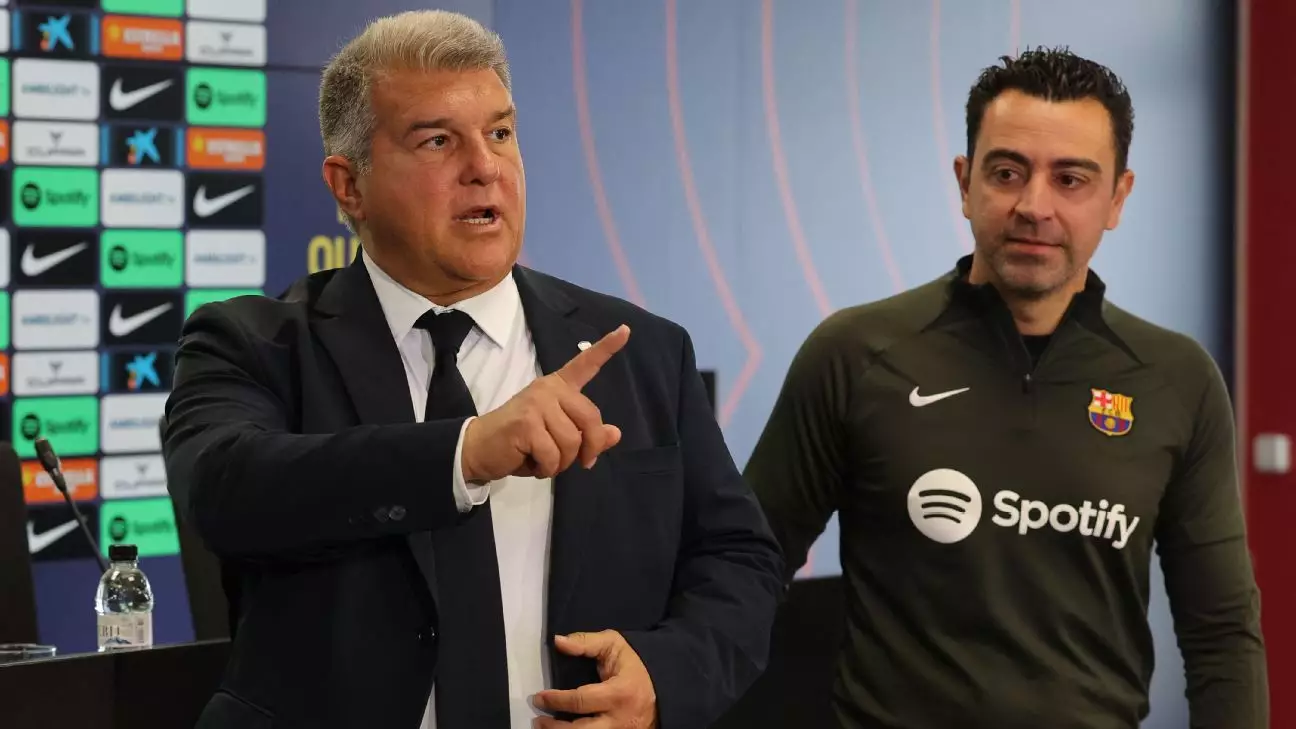Barcelona president Joan Laporta recently disclosed that uncertainty regarding Xavi Hernández’s confidence in the current squad influenced the club’s choice to replace him with German coach Hansi Flick. Laporta mentioned that even though Xavi had initially declared his decision to step down at the end of the season, his subsequent change of heart raised questions about his faith in the team. According to Laporta, Xavi’s conversations with sporting director Deco regarding necessary squad changes led to doubts about his commitment, prompting the need for a new direction to make the team more competitive and maximize its potential.
Contrast Between Xavi and Flick
Laporta highlighted the difference in perspectives between Xavi and Flick, emphasizing Flick’s belief in the current squad’s ability to succeed. Flick’s confidence in the team’s capabilities played a crucial role in his appointment, as Laporta expressed Flick’s readiness to take on the challenge of improving the players’ fitness levels, an area that was reportedly lacking under Xavi’s leadership. Laporta’s decision to prioritize the team’s physical preparation aligns with Flick’s goal of ensuring that all players, including youngsters and key figures like Robert Lewandowski, are in peak physical condition to compete at the highest level.
Summer Transfer Plans
Looking ahead to the summer transfer window, Laporta assured that Barcelona’s financial situation would not force them to offload their best players unless those players express a desire to leave. Instead, the focus will be on potential signings to strengthen the squad, with an emphasis on renewing loan deals for João Félix and João Cancelo. Laporta also mentioned the club’s interest in potentially adding players in key areas such as defensive midfield, highlighting the contributions of players like Andreas Christensen and young talents from the B team like Marc Casadó.
In terms of future acquisitions, Laporta outlined the club’s strategy of not pursuing major signings but rather seeking to fill specific positions to complement the existing squad. While a midfielder and a winger are on the radar, Laporta emphasized the potential of the club’s academy to provide talent and depth in crucial areas. By adopting a balanced approach to recruitment, Barcelona aims to build a competitive squad that can hold its own in European competitions, a vision that resonates with Flick’s philosophy of utilizing the academy to strengthen the team.
Barcelona’s decision to part ways with Xavi in favor of Flick reflects the club’s commitment to prioritizing team dynamics, fitness levels, and strategic squad improvements. Laporta’s willingness to make tough decisions for the betterment of the club underscores the constant evolution and refinement required to maintain Barcelona’s competitive edge. With a blend of experienced players, emerging talents, and strategic signings, Barcelona aims to navigate the challenges of modern football while staying true to its identity and values.
